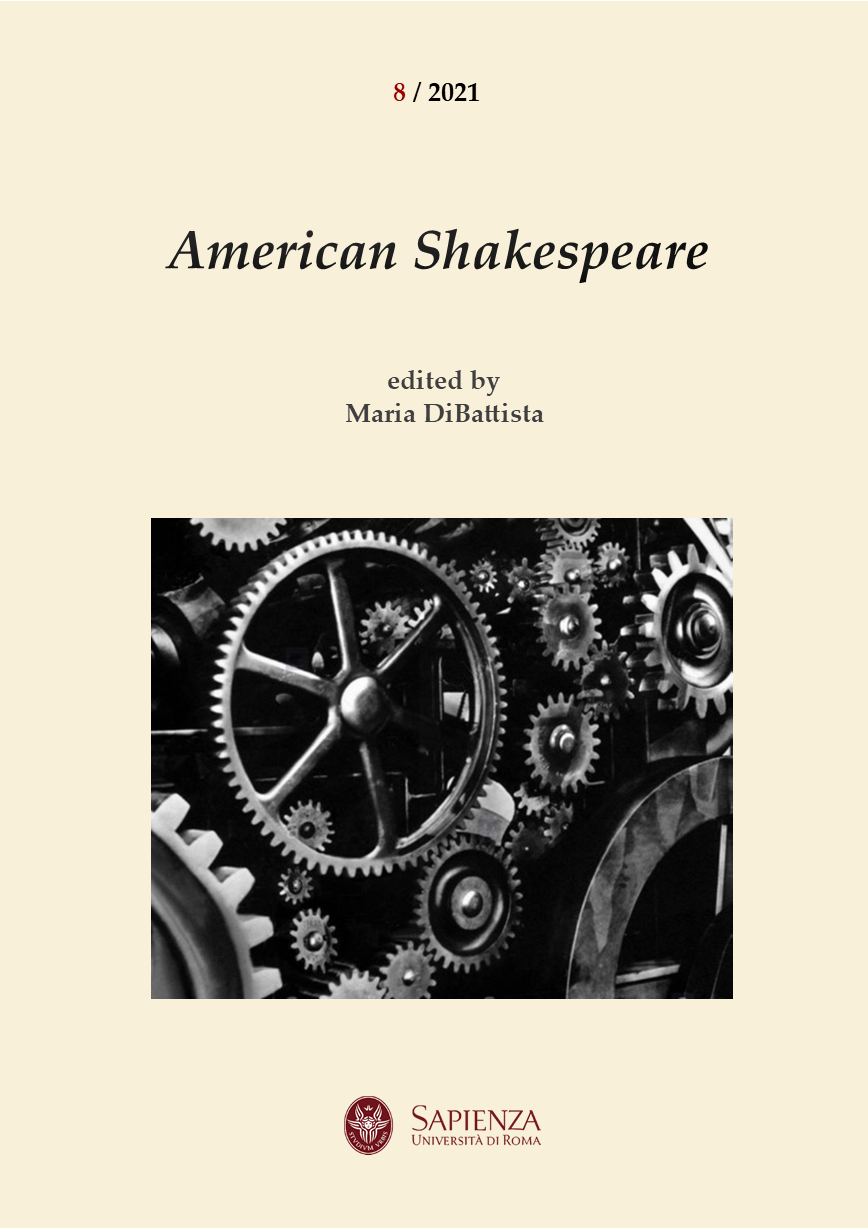Emerson’s Shakespeare and the Myth of Discovery; or, Appropriating Shakespeare for America
DOI:
https://doi.org/10.13133/2283-8759/17610Keywords:
America, Homer, Influencer, Materials, Medium, Originality, Representative/RepresentationAbstract
Taking its cue from a contribution of mine to a past issue of this journal (Persona Pratica e Persona Poetica, Memoria di Shakespeare 2, On Biography, ed. Rosy Colombo and Gary Taylor, 2015, pp. 1-23), this article takes a step further, tracing Emerson’s complex relationship with Shakespeare, mainly through his two essays The Poet (1844) and Shakspeare; or, the Poet (1850). The act of reading is here dramatized: hence the structure in four ‘acts’ of a composition arranged as an imaginary two-voiced fugue. Quotations from Emerson’s essays (in italics) are contrapuntually interwoven with my own reflections on texts whose freshness and directness of approach are astounding. Emerson has not developed his theme by singling out any play or character in particular: his Shakspeare looks naturally American, before any of the plays exists. His words have fallen out of heaven directly on American soil, and are staring at America’s “incomparable materials”: waiting, “like the enchanted princess in fairy tales”, for the “destined human deliverer” who will be doing justice to them. In what looks like a new act of ‘discovery’, Emerson does, for American letters, what the early settlers of his own time were doing for the American continent.


